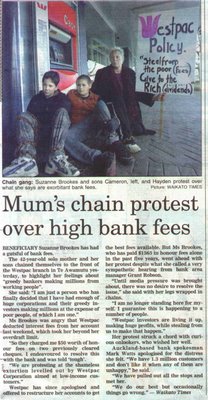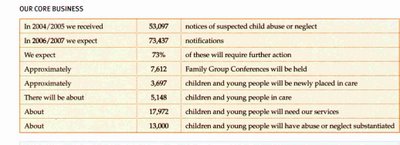Media Release
BLITZ ON THE DPB MORE URGENT
Tuesday, July 4, 2006
While a "blitz" on the dole is welcome, even more urgent is a blitz on the DPB, according to Lindsay Mitchell, welfare commentator.
Appearing on Breakfast TV yesterday Mitchell said, "We must stop paying babies to have babies."
"Obviously the Prime Minister wasn't listening. According to the DomPost she has called for a blitz on the dole and identification of families that have been on welfare for three or four generations. While those on the dole may be fathering the babies it's the women on the DPB who are having them. They control that eventuality and they won't rely on a man's income if they don't have to. It is the DPB driving intergenerational dependency - not the dole."
"But why has it taken so long for the PM to make this call, as incomplete as it is? In 2004, when the dole 'no-go' zones were introduced, I asked the Prime Minister why they didn't apply to people on the DPB. She admitted then there are families in Northland and the East Coast where drug, alcohol, violence and crime problems were rife and some children hadn't seen their grandparents go to work, let alone their parents."
"In 2003 New Zealand data was analysed by the University of Auckland in an effort to define the degree of intergenerational benefit dependency. They found a correlation co-efficient of between one and two thirds. The 'results also suggested that transmission of welfare dependency from one generation to the next may be somewhat stronger among females and Maori youth.' "
"Just last year an evaluation of the Early Start programme in Christchurch, which looked at families most in need of support services found that 64 percent were single parent families. Of those over half of the mothers had been raised in single parent families. 90 percent of the families were on welfare."
"This problem has been staring us in the face for decades. The Prime Minister needs to get over her feminist inclinations and call for a blitz on both the dole and the DPB or is it only men who are to be scrutinised?"







